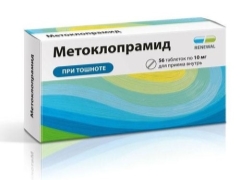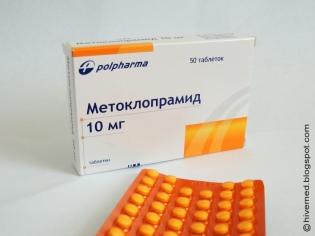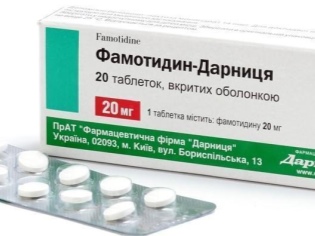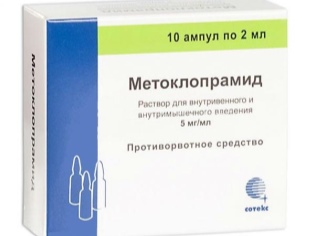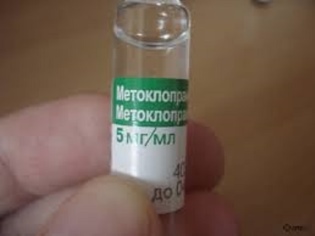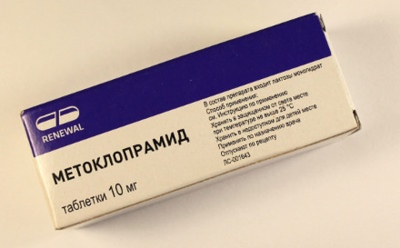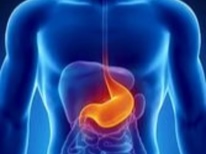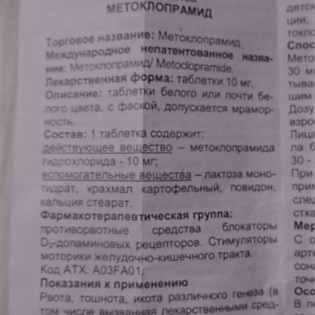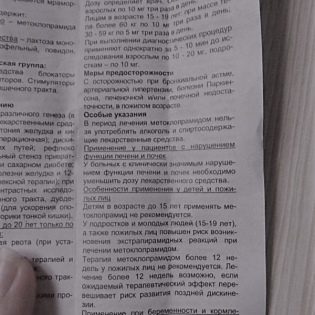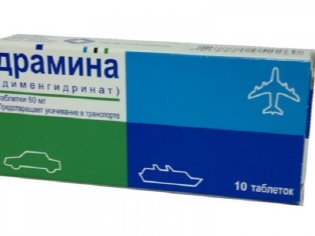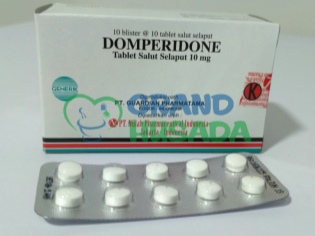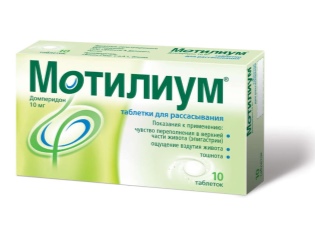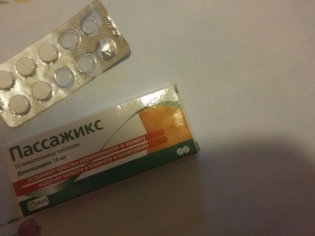Metoclopramide for children
Metoclopramide is a drug used by adults for vomiting caused by various causes. Not everyone knows whether it is possible to give this drug to children, in what situations it is allowed and in what dosage.
Release form
The drug is presented in pharmacies in two forms:
- Tablets, which in one pack is from 10 to 100 pieces. They have white or yellowish-white color, there may be a slight marbling.
- Ampoules for intramuscular or intravenous administration, packaged in 5-20 pieces. Inside the ampoule there is a slightly colored or colorless transparent liquid.
Composition
The action of the drug is due to a substance that is called the same way as the drug - metoclopramide. It is represented by the hydrochloride form and is contained in 1 tablet and in 1 ampoule at a dosage of 10 mg (in 1 ml of injectable medication - in an amount of 5 mg).
Among the auxiliary components of tablets from different manufacturers you can see lactose, povidone, talc, Ca stearate and other substances. The vials contain sodium chloride, sterile water, sodium sulfite, and other compounds.
Operating principle
Metoclopramide affects the serotonin and dopamine receptors in the brain, and also reduces the sensitivity of nerves that conduct impulses from the digestive tract to the vomiting center. This is manifested by the inhibition of the gag reflex.
In addition, the drug has the ability to influence the parasympathetic nervous system and the hypothalamus to strengthen the motility of the gastrointestinal tract, thereby helping to get rid of hiccups and nausea.
After taking the drug, the stomach empties faster, but at the same time the gastric juice is excreted in a normal amount. Although the food is rapidly accelerated in the intestines as a result of the medication, diarrhea does not provoke the use of Metoclopramide.
The drug also normalizes the secretion of bile, helping with gallbladder dyskinesia. The drug has the ability to stimulate the healing of ulcerative lesions of the digestive tract.
The action of "Metoclopramide" begins to manifest itself quite quickly - 1-3 minutes after injection into a vein, approximately 10 minutes after the intramuscular injection. Tablets begin to act after 30-60 minutes. The duration of the antiemetic effect of such a drug reaches 12 hours.
Indications
The main reason to appoint a child "Metoclopramide" is vomiting.
The cause of its occurrence are:
- medication - for example, antibacterial or cytostatic;
- liver pathology;
- traumatic brain injury;
- eating disorders;
- renal failure;
- radiation therapy.
In addition, the medicine is used:
- with reflux esophagitis;
- with flatulence;
- with gastric ulcer and intestinal ulcers;
- with biliary dyskinesia;
- with postoperative reduction of gastrointestinal motility;
- with Tourette syndrome;
- with migraine;
- in preparation for probing or X-ray examination of the digestive tract.
At what age is it allowed to take?
In the first two years of life, no form of "Metoclopramide" is prescribed to children. Tablets can be given from 2 years of age, but only when indicated and under the supervision of a physician. Injections are used in the treatment of children 6 years and older.
Contraindications
The medicine should not be given to children:
- with hypersensitivity to any of the ingredients of the selected form "metoclopramide";
- with epilepsy;
- with bleeding in the digestive tract;
- with glaucoma;
- with intestinal obstruction;
- with pheochromocytoma;
- with renal insufficiency;
- with high blood pressure;
- with extrapyramidal disorders;
- after operations on the digestive tract;
- with bronchial asthma;
- with pyloric stenosis;
- with prolactin-dependent tumor;
- with perforation of the digestive tract wall;
- with liver failure.
The drug is not prescribed for vomiting provoked by motion sickness, as it does not help eliminate vestibular disorders.
Side effects
In some young patients, use of Metoclopramide may cause drowsiness, fatigue, dry mouth, dizziness, motor restlessness, changes in blood pressure or heart rate, allergic rash, changes in stool, and other negative effects. When they occur, you should immediately show the child to the doctor.
Instructions for use and dosage
Consider the following:
- Tableted "Metoclopramide" is taken 15-30 minutes before meals. The drug is not chewed, and swallow and washed down with water.
- Injections are made both intramuscularly and into the vein. The route of administration is determined individually.
- The dosage for children 2-6 years is calculated by weight - it is multiplied by 0.5-1 mg. The daily dose obtained by this calculation is divided into three doses. At this age, the medication is given only in pills.
- A child older than 6 years old, any of the forms of "Metoclopramild" is prescribed in a single dose of 5 mg (half a tablet or 1 ml of solution) - one to three times a day.
Overdose
Too much of an injectable or pill preparation affects the nervous system and can cause disorientation, drowsiness, convulsions and other symptoms. In case of an overdose, you should immediately contact your child with a doctor.
Interaction with other drugs
Treatment with Metoclopramide affects the intake of many drugs (hypnotics, tetracyclines, famotidine, digoxin, antipsychotics, paracetamol, etc.), which the physician must take into account when prescribing such a medicine.
Terms of sale
To purchase any form of Metoclopramide, you must show a prescription from a pediatrician, gastroenterologist, or other specialist. The price of the drug affects both the manufacturer and the form of the drug. On average, 50 tablets cost about 30 rubles, and 10 ampoules - about 50-60 rubles.
Storage features
It is recommended to keep Metoclopramide at home out of the reach of small children, at room temperature. The shelf life of the solution in ampoules is 4 years, tablets - 2 years.
Reviews
About the reception of "Metoclopramid" speak mostly well, noting that such a drug is very strong and fast antiemetic effect, and the price is much lower than that of counterparts. Among the minuses parents call a large list of contraindications and possible side effects.
Analogs
A popular replacement is “Zeercal". This drug has the same active ingredient, therefore, the indications and other characteristics of "Cerucal" and "Metoclopramide" are the same, but the price is different. In addition, instead of metoclopramide drugs, other antiemetic drugs may be prescribed for the child — for example, «Dramina"," Passage ","Motilium" or "Domperidone».
In the video below, you can get acquainted with the effect of similar drugs.
